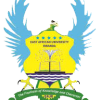
This course will enable students to learn writing skills
- Teacher: Solange UMURERWA

This module introduces students to the principles and techniques of effective writing for various mass media platforms, including print, broadcast, and online outlets. It emphasizes clarity, accuracy, objectivity, and creativity in news and feature writing.
- Teacher: Solange UMURERWA

THE COURSE INTRODUCES THE STUDENTS TO MEDIA HISTORY AND EQUIPS THEM WITH THE NECESSARY SKILLS TO EDIT VIDEOS AND AUDIO USING PROFESSIONAL SOFTWARE IN THE MEDIA INDUSTRY.
- Teacher: Paul Atenya

Course Overview:
Introduction to Mass Communication provides students with a foundational understanding of how information is created, transmitted, and received through various mass media channels. It explores the structure, functions, and impact of mass communication on society, culture, politics, and the economy. Students learn about traditional and new media—including print, radio, television, film, and digital platforms—and how they shape public opinion and social change.
- Teacher: Edison ISHIMWE

Objectives:
- To introduce learners to the basic components and functions of computers.
- To develop proficiency in using common computer applications such as Microsoft Word, Excel, and PowerPoint.
- To teach effective file and folder management techniques.
- To build skills in using the internet for research, communication, and information sharing.
- To promote awareness of digital safety, privacy, and responsible computer use.
- To prepare learners to use technology confidently in academic, professional, and personal settings.
Learning Outcomes:
- Identify and explain the basic parts and functions of a computer system.
- Operate a computer and navigate operating systems (e.g., Windows or macOS).
- Use word processing software to create, format, and edit documents.
- Create and manage spreadsheets for data entry, calculation, and analysis.
- Design professional presentations using PowerPoint.
- Access, browse, and search the internet efficiently.
Course Code: ESC 111
Credits: 10
Academic Year: 2024-2025
Lecturer: Christine UZAMUKUNDA
- Teacher: INNOCENT IRANKUNDA

